Postgraduate researchers took the spotlight at BU’s latest Research Café

We had a packed house at the BGB Café for a fascinating evening engaging conversation.
Three passionate postgraduate researchers from Bournemouth University took the stage to share their work. Each speaker gave a short talk on their research, sparking plenty of interest and questions from the audience. We covered everything from what drives our travel choices, to how nostalgia shapes our experience of video games, to the links between alcohol and eating habits in women.
Anna Preece Thesis: Disordered eating behaviours as a barrier to recovery in women with alcohol dependence | Rehabilitation and Sports Sciences (HSS)
Anna presented research on the behavioural links between food and alcohol, exploring how drinking habits and eating behaviours are connected in women. The talk highlighted the implications of these connections for mental health and well-being and discussed ways to improve support for individuals facing these challenges.
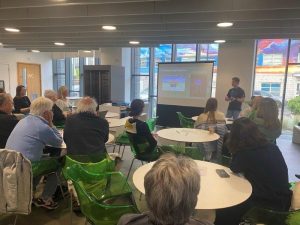
Jordan King presenting at Research Café
Jordan King Thesis: Exploring Nostalgic Experiences in Video Games | Psychology (FST)
Jordan explored the emotional power of video games, examining how they evoke memories from the past and create a sense of nostalgia. The talk focused on how digital play connects us to both personal and cultural memories, highlighting the deep emotional impact of gaming.
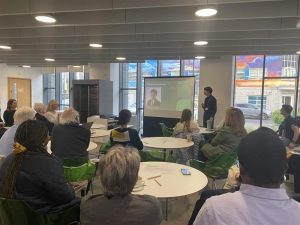
Wookjun Lee talking at Research Café
Wookjun Lee Thesis: Tourists’ use of public transportation in urban destinations: An experiential perspective | Marketing, Strategy and Innovation (BUBS)
Wookjun examined the factors influencing tourists’ travel choices, focusing on the role of public transport and how to encourage more eco-friendly travel habits. The talk highlighted strategies for promoting greener, more sustainable options for tourists.
It was a great chance to explore topics that affect our everyday lives and get a glimpse into the real-world impact of research happening at BU.
Attendees shared “It was a lovely event. A great time to learn and bond with other researchers” “It was inspiring to see the next generation of researchers sharing their work”
“I found it really interesting to hear directly from postgraduate researchers about the work happening at BU. The range of topics and the enthusiasm behind them made it a really engaging event”

Anna Preece speaking at Research Café
As one of the evening’s speakers, Anna Preece reflected on the experience
“I wanted the opportunity to share my research and hear people’s thoughts and questions about the project. It’s so important in research to hear different perspectives, especially those outside of academia, as they can challenge our thinking, or bring in new ideas… When you’re deep in the research, it’s easy to get lost in the data, so being reminded of the real-world context was invaluable… I hope attendees found the evening thought provoking and enjoyable and it helped them start to recognise the overlap between food and alcohol behaviours and consider what that might look like for themselves or someone they care about.”
Enrica Conrotto, Doctoral College Programme Manager at Bournemouth University, attended the evening and said
“a fantastic event showcasing the work of our Doctoral College PGRs. Congratulations to Anna Preece, Jordan King and Wookjun Lee for their engaging presentations, and a big thank you to the Public Engagement Team for organising the evening. An inspiring evening filled with engaging discussion”
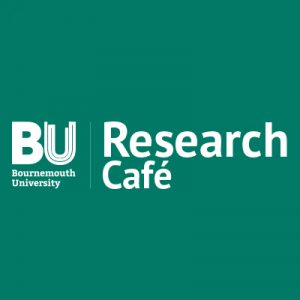 Next up in our Research Café series
Next up in our Research Café series
Tuesday 1 July, 6:30-8pm at BGB Café
More details coming soon
Contact
If you have any questions about this event or the Research Café series, please contact the Public Engagement with Research Team at publicengagement@bournemouth.ac.uk

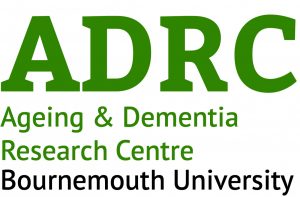



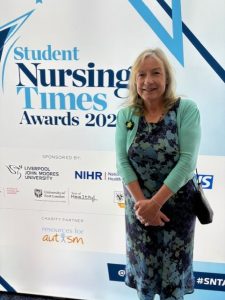 Congratulations to Sarah Moreton, PhD student at Bournemouth University, who was nominated and shortlisted for her research into the challenges faced by the nursing workforce in implementing the COVID-19 vaccination programme during the pandemic. A great achievement Sarah – very well done.
Congratulations to Sarah Moreton, PhD student at Bournemouth University, who was nominated and shortlisted for her research into the challenges faced by the nursing workforce in implementing the COVID-19 vaccination programme during the pandemic. A great achievement Sarah – very well done.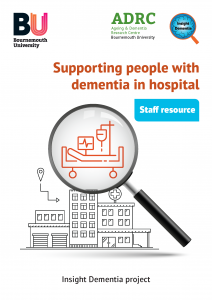



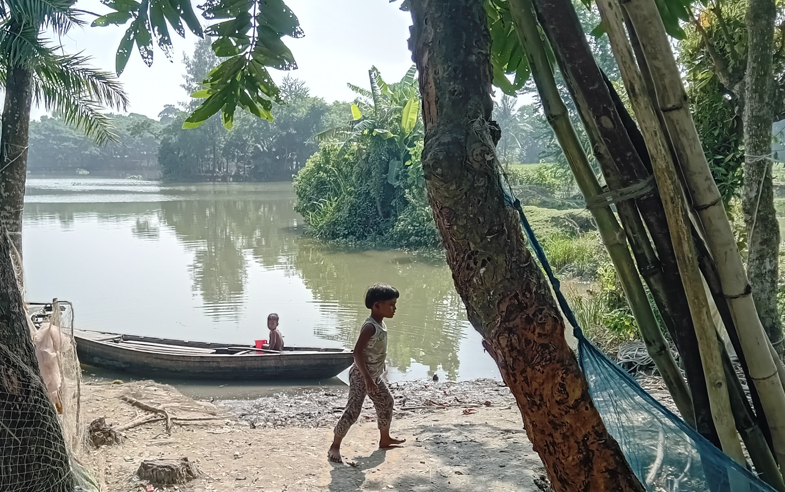




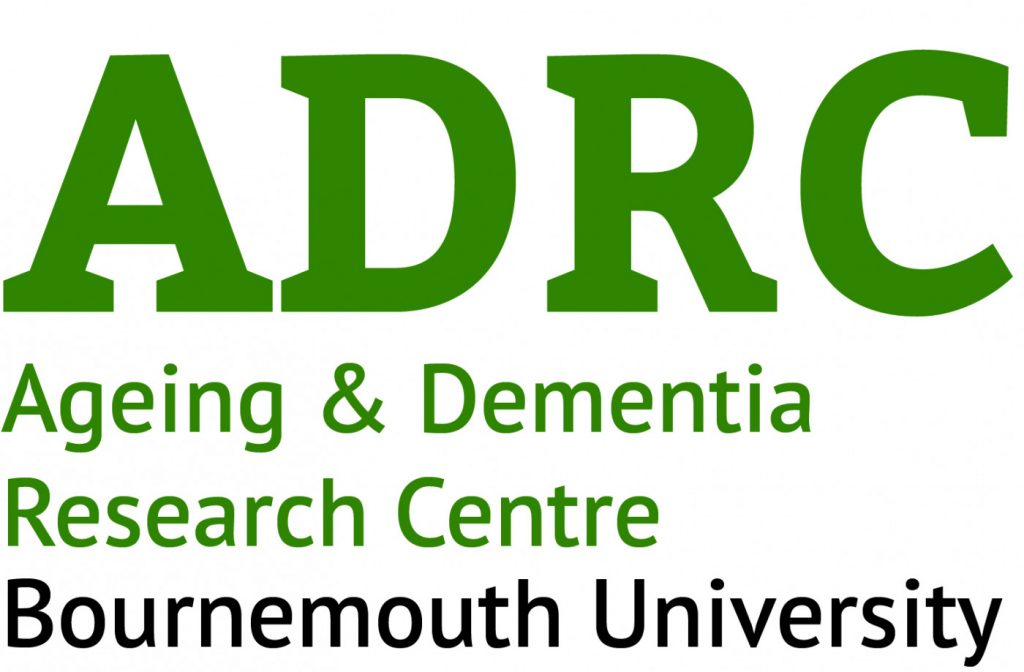
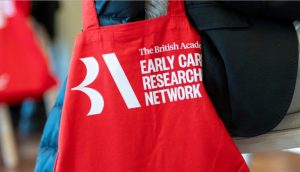
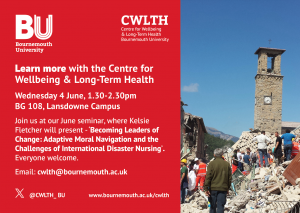
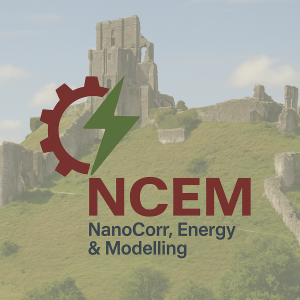 Coating Innovation for Tough Environments
Coating Innovation for Tough Environments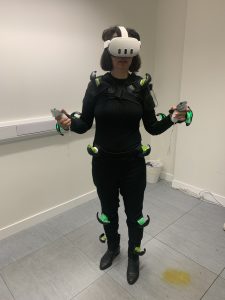 This is Dr Roya Haratian participating in data collection to help develop AI which can read emotions from motion!
This is Dr Roya Haratian participating in data collection to help develop AI which can read emotions from motion!










 New CMWH paper on maternity care
New CMWH paper on maternity care From Sustainable Research to Sustainable Research Lives: Reflections from the SPROUT Network Event
From Sustainable Research to Sustainable Research Lives: Reflections from the SPROUT Network Event REF Code of Practice consultation is open!
REF Code of Practice consultation is open! ECR Funding Open Call: Research Culture & Community Grant – Apply now
ECR Funding Open Call: Research Culture & Community Grant – Apply now ECR Funding Open Call: Research Culture & Community Grant – Application Deadline Friday 12 December
ECR Funding Open Call: Research Culture & Community Grant – Application Deadline Friday 12 December MSCA Postdoctoral Fellowships 2025 Call
MSCA Postdoctoral Fellowships 2025 Call ERC Advanced Grant 2025 Webinar
ERC Advanced Grant 2025 Webinar Update on UKRO services
Update on UKRO services European research project exploring use of ‘virtual twins’ to better manage metabolic associated fatty liver disease
European research project exploring use of ‘virtual twins’ to better manage metabolic associated fatty liver disease